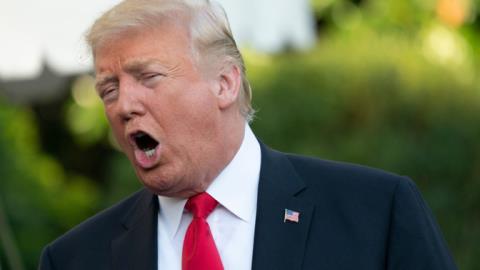With Donald Trump in power, the new acting chairman of the Securities Exchange Commission (SEC) is shifting the watchdog’s approach to digital assets by launching a crypto task force aimed at developing a regulatory framework for the sector.
For years, the SEC, under Gary Gensler’s leadership, has faced conflicts with the crypto industry, engaging in legal battles with several prominent players, primarily regarding whether the assets listed on their platforms qualify as securities. However, with Gensler’s departure and Trump’s newfound support for crypto—including the launch of his own meme coin—the regulator is reevaluating its strategy.
The SEC has stated that it has largely relied on enforcement actions to regulate crypto in a retroactive and reactive manner, often utilizing untested legal interpretations. They acknowledged that clarity regarding registration requirements and practical solutions for those wishing to register have been lacking, resulting in confusion about legal compliance, an environment that stifles innovation, and increased opportunities for fraud. The SEC aims to improve in these areas.
The newly formed task force will focus on establishing clear regulatory guidelines, providing practical paths to registration, creating sensible disclosure frameworks, and deploying enforcement resources judiciously.
In addition to the SEC, the Federal Deposit Insurance Corporation (FDIC) is also seeking to embrace change during the Trump administration. The FDIC aims for a more open-minded approach to innovation and technology adoption, which involves a transparent strategy regarding fintech partnerships and digital assets. They also intend to engage with community banks to address rising technology costs.
Late last year, the FDIC, while still under the Biden administration, began developing plans to safeguard customers from fintech failures following incidents like the collapse of Synapse, which left clients of the BaaS platform unable to access their funds. The FDIC was preparing new regulations concerning third-party reconcilement requirements.
In a notable development, Trump recently granted a full and unconditional pardon to Ross Ulbricht, the founder of The Silk Road—a dark web marketplace known for facilitating the sale of illegal goods using bitcoin. Ulbricht was sentenced to life in prison in 2015 for narcotics and money-laundering conspiracy charges; since then, he has become a symbol for libertarians who argue that his conviction represents government overreach. Following the pardon, Trump expressed his belief that those involved in Ulbricht’s conviction were part of a broader governmental misuse of power against him.
